Although many of us choose not to maintain these simple habits, we shouldn’t forget their importance.
Wearing a snorkel
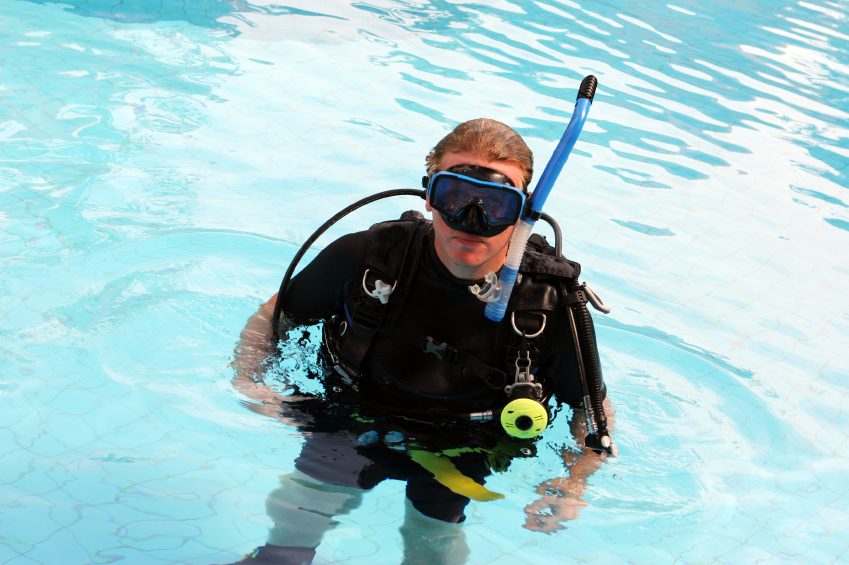
You remember one of these — it’s that irritating tube that hangs uselessly on the left side of your mask. The clip is often awkward and gets stuck in long hair. It usually floats around with either the mouthpiece or splashguard disrupting your field of vision. Sometimes a current jogs it and upsets your mask’s seal, leaving you to clear your mask 50 times in as many minutes and surface with stinging eyes, red and puffy from the salt water.
Snorkels do serve a purpose though. Perhaps its most obvious use is to do some snorkeling before a dive while waiting for other divers to get into the water, or afterwards when waiting for the boat to come pick you up. They are especially handy to keep you from swallowing half the ocean when the surface is a bit choppy.
Snorkels are there to make you more comfortable on the surface, designed to allow you to complete skills like donning or removing your weight belt and gear in the water with greater ease.
Right-hand release weight belts

Customers often tell me: “I wear my weight belt with a left-hand release because I am left-handed.” Divers should wear their weight belts with a right-hand release to standardize it — in an emergency your buddy might have to remove your weights for you. A consistent right-hand release avoids confusion and saves time in a critical situation.
Checking your gear before you board the boat
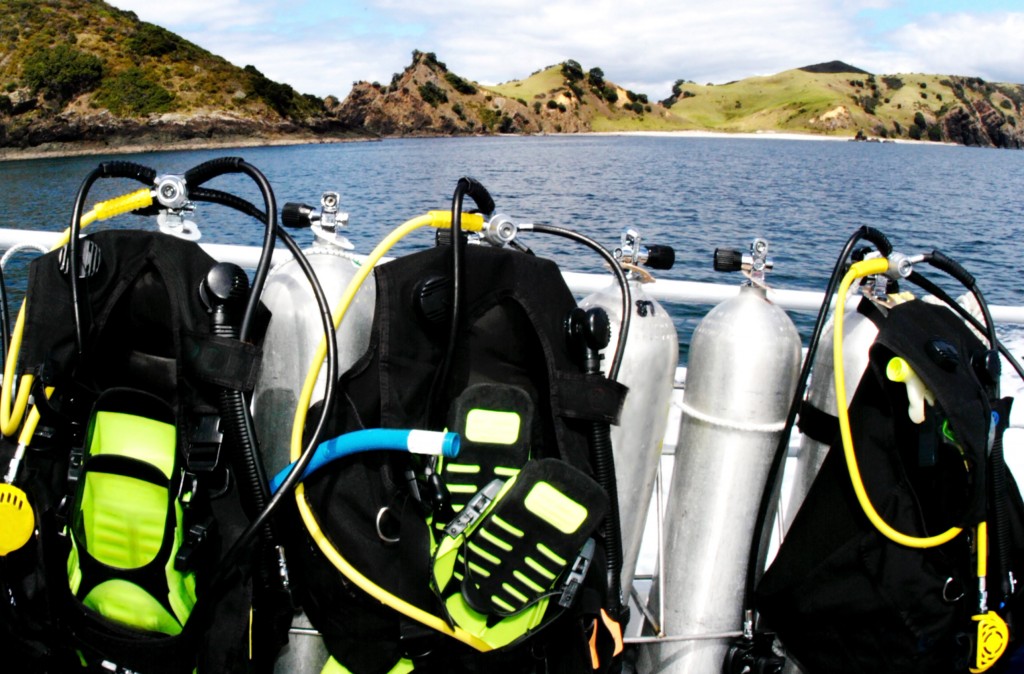 There is a fine line between outstanding customer service and independent, responsible diver behavior. Many dive centers prepare their customers’ gear as part of good service, but in so doing, we are creating divers who become dependent on the dive staff to take responsibility for everything from putting baby shampoo in their masks, to setting up gear, and even to — quite literally — putting the fins on their feet. Check your own gear before you board; make sure your straps, clasps and computer are functional; and put on your own fins.
There is a fine line between outstanding customer service and independent, responsible diver behavior. Many dive centers prepare their customers’ gear as part of good service, but in so doing, we are creating divers who become dependent on the dive staff to take responsibility for everything from putting baby shampoo in their masks, to setting up gear, and even to — quite literally — putting the fins on their feet. Check your own gear before you board; make sure your straps, clasps and computer are functional; and put on your own fins.
Keeping your mask on your face or around your neck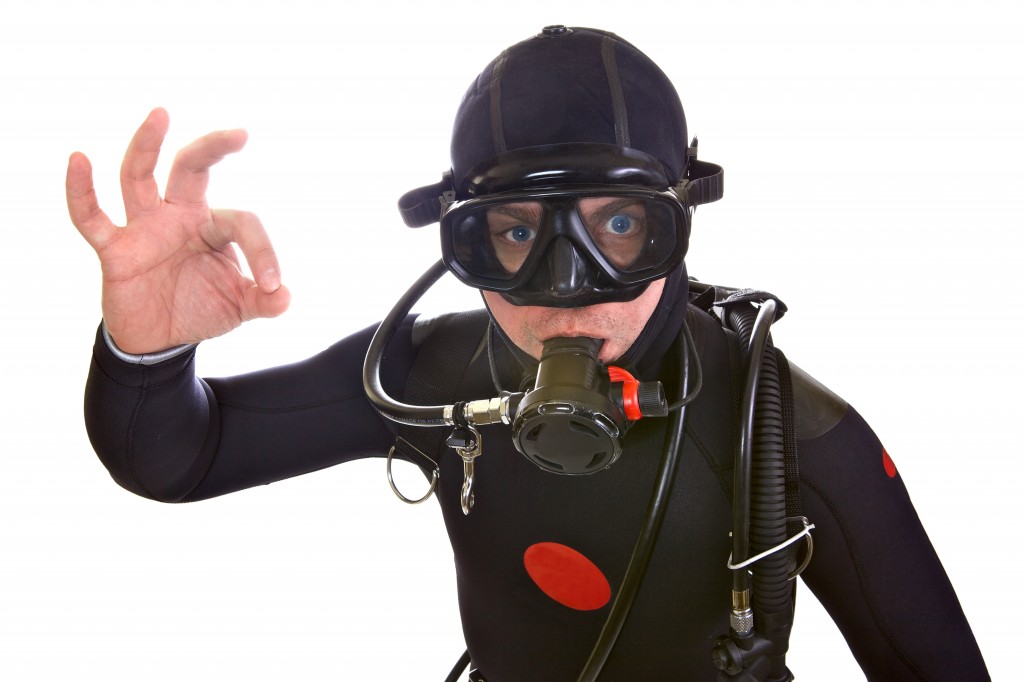
Usually the first thing that divers do upon reaching the surface, after removing their regulator, is to remove their mask. I used to do this all the time — until the first time I lost a mask. If you put your mask on your forehead, you run the risk of a wave knocking it off. Someone may also mistake you for a panicked diver and attempt to save you. Now, if you have a particularly attractive divemaster or instructor this might not be such a bad thing, as rescue breathing is almost always necessary.
Proper weighting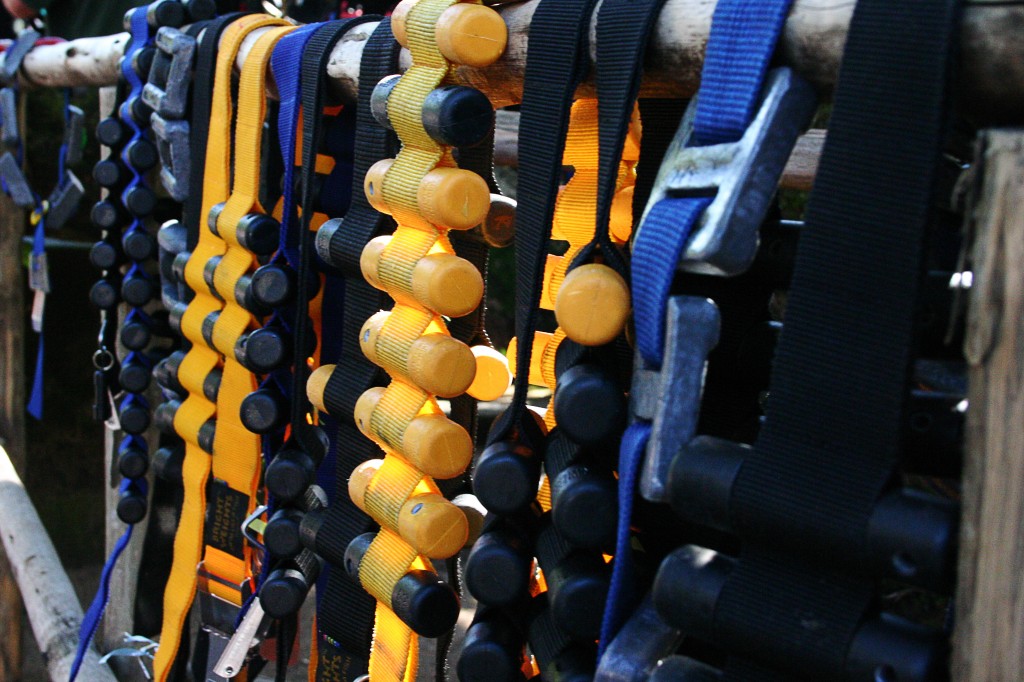
Divers often believe that being over-weighted is better than not having enough, and this is true up to a point. When doing a deep dive it is especially important that you can maintain your depth for the safety stop at 15 feet. But it’s equally important that you’re not over-weighted. Adding more weight to get you down and keep you down leads to a less efficient and streamlined diving position. Proper buoyancy — without the extra lead — is a key to becoming a capable diver.
Refreshers
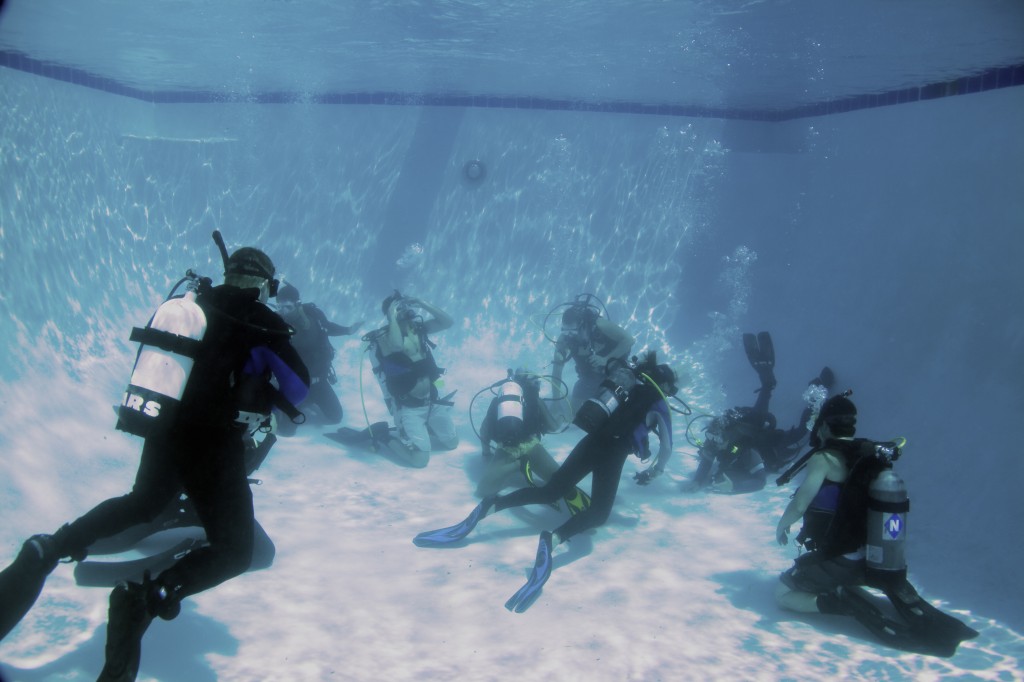
Diving is kind of like riding a bike: Once you are on it, and you’ve gained some momentum, the muscle memory returns and it starts to feel natural (or at least somewhat comfortable) again.
If it’s been awhile since you went diving, refreshers are a great way to help you feel comfortable in the water again. A refresher will remind you of important dive theory and how to complete the most common skills. Taking a refresher means you won’t spend the first 20 minutes of your dive getting used to breathing through your regulator again or playing around with your buoyancy. It makes your whole dive more relaxed and allows you to focus on why you’re diving: to look at fish and have fun.

